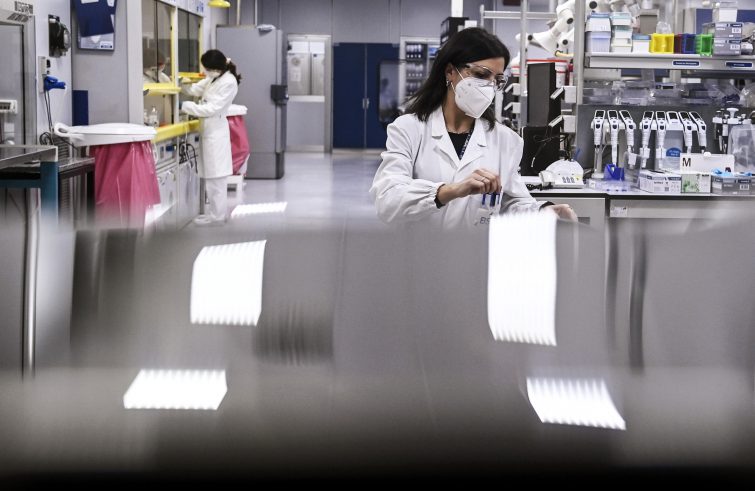
Italy’s Medicines Agency has authorized the use of Monoclonal Antibody for early treatment of Covid-19 while The Lancet published data indicating that Russia’s Covid-19 vaccine is 91.6 per cent effective. These were among the important findings of the last few hours in the battle against the pandemic. Interviewed by SIR, Dr. Giuseppe Ippolito, Scientific Director of Rome’s Lazzaro Spallanzani National Institute for Infectious Diseases, , explains how the Russian vaccine works, voicing perplexities on the costly monoclonal antibodies and on sequencing. To identify circulating variants, he suggests:
“the creation of a genetic surveillance network to determine how the virus is evolving”
Professor, both the Sputnik and Astrazeneca are adenovirus vectored vaccines, how do they differ?
Both vaccines use the same technology of non-replicating viral vectors holding extra genetic material that codes for the SARS-CoV-2 spike protein. When this engineered virus enters human cells, instead of replicating itself it produces multiple copies of the spike protein, thus triggering the immune response.
The most significant difference between the two vaccines is that the Russian vaccine uses two human adenoviruses (the viruses that cause colds), while AstraZeneca’s vaccine uses the chimpanzee adenovirus.
The sputnik vaccine requires two doses, how is it stored?
Just like the AstraZeneca vaccine, the Russian vaccine is stored in the same way as the flu vaccine, in an ordinary refrigerator. Sputnik requires a two-stage dosage, but the Gamaleya Institute is developing a single-dose vaccine that has been dubbed “Sputnik -Light.” I must also add that a joint trial by Gamaleya and AstraZeneca will assess the safety and immunogenicity of administering the first dose of the Russian vaccine and a second dose of the Anglo-Swedish vaccine to a group of volunteers, with another group receiving the opposite combination.
On the subject of Covid-19 treatment, the president of the Italian Medicines Agency (AIFA), Palù, recommends the emergency use authorization of monoclonal antibodies. Do you support their use or do you have doubts?
Monoclonal antibodies are a therapeutic option with a sound underlying rationale: antibodies capable of virus neutralisation are extracted from convalescent blood plasma, engineered and produced in large quantities. The results of clinical trials to date are inconclusive, data support earlier use of convalescent plasma in the disease course.
However, we should not delude ourselves into thinking that we have a silver bullet that will defeat the infection:
the use of monoclonal antibodies in fact entails some major logistical problems, most notably the fact that they must be administered by intravenous infusion in a hospital environment, and their use appears to be more successful when administered in the early stages of the disease or for prophylactic purposes, especially in immunocompromised patients for whom the vaccine may be contraindicated.
They are also very expensive, amounting to several thousand dollars for each treatment:
which also helps explain the reason for so much hype and pressure on regulatory agencies to approve them quickly.
The latest circular letter issued by the Ministry of Health focuses on variants and suggests increasing quarantine provisions, why?
This is because the new virus variants, especially B.1.1.7, also known as ‘the English variant’, are characterised by increased transmissibility.
Thus, the Ministry’s instruction recommends testing in the event of confirmed variant infections and to quarantine not only close contacts, as is already the case with wild virus infections, but also low-risk contacts; the quarantine period remains unchanged at 14 days, but confirmed cases of coronavirus variants must not end the quarantine earlier even if they test negative on the tenth day.
The Ministry is advocating increased sequencing to identify circulating variants, is the Spallanzani Institute at the forefront of this activity?
Sequencing is key for many reasons.
Without sequencing we cannot identify the predominant variants, i.e. we are unable to determine how the virus is evolving.
Knowledge of new coronavirus variants will allow to determine the most appropriate containment and prevention measures and to consider the mutated strains in the development of new vaccines and targeted drugs like monoclonal antibodies. Rome’s Spallanzani infectious-diseases hospital has performed and continues to perform the greatest amount of sequencing, but this activity needs to be intensified and, above all, disseminated nationwide: a genomic surveillance network needs to be set up to understand how the spread of the virus is evolving. The Ministry’s announcement a few days ago is a step in this direction: it is now a question of hastening the pace and moving from words to deeds.









